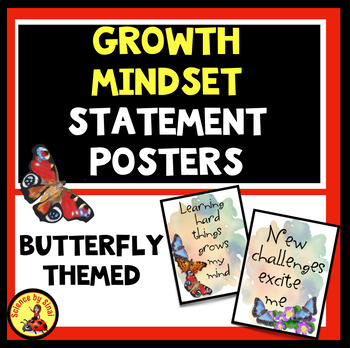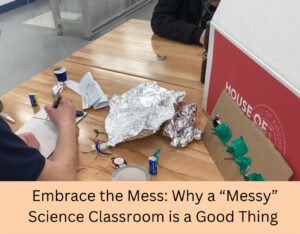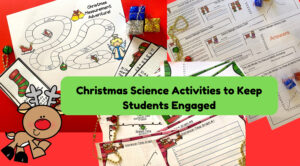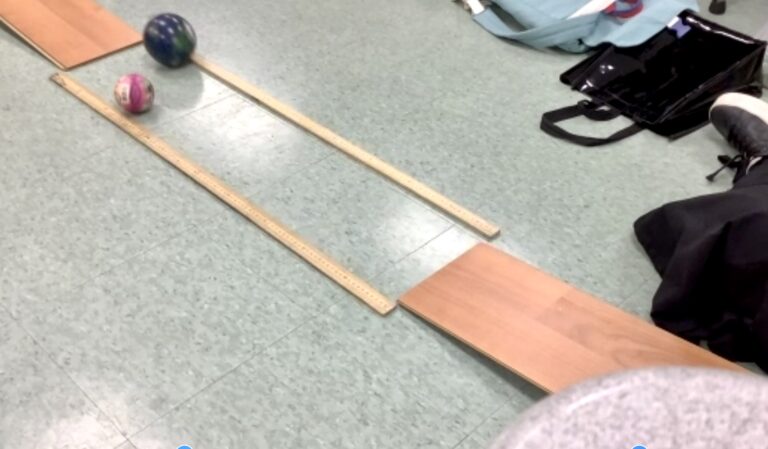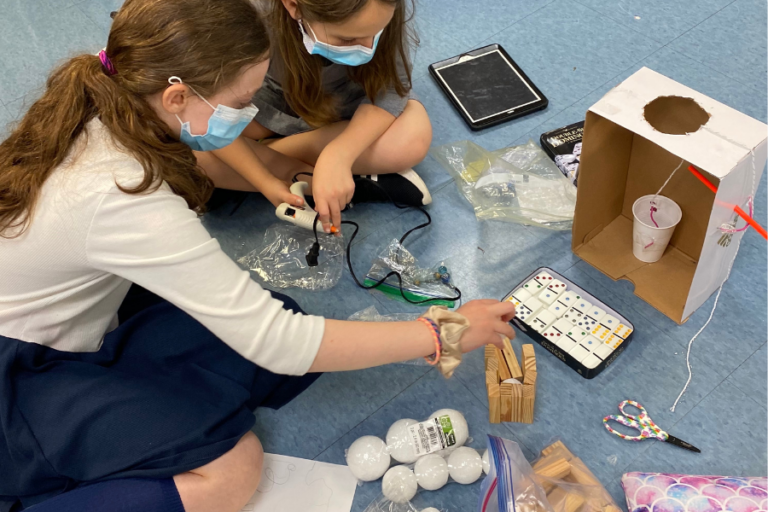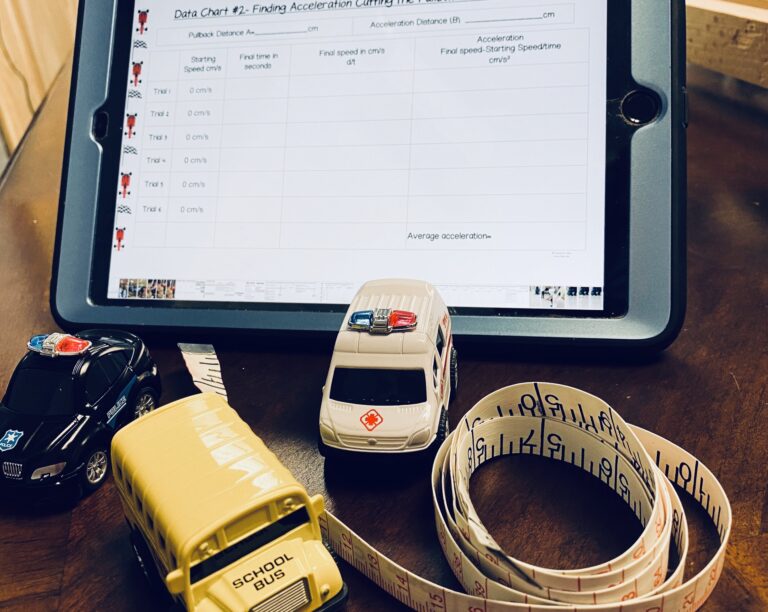How to Help Students Succeed in Science Class
Are your students unsure how they can succeed in science class? Do they constantly ask how they can get an A in your class?
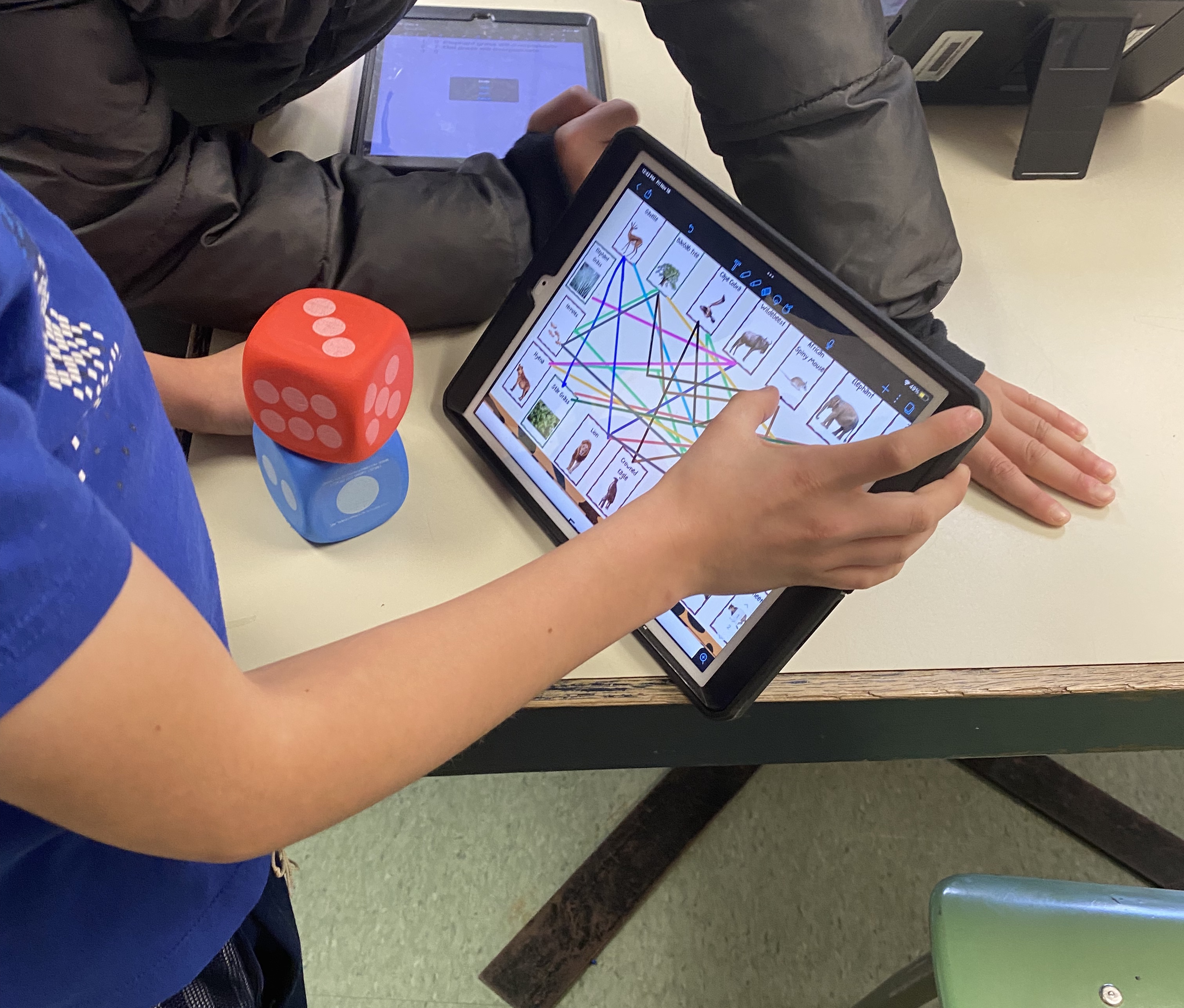
How to Help Students Succeed in Science Class
August, 2024
We often assume that students have the tools to succeed in science class, but science is a completely different type of class than math or history. On the first day of school, I give students a handout with a list of what I’m going to cover, and I also keep a poster on my classroom wall to refer to throughout the year. Helping students with their organization, active participation, and maintaining a positive mindset really makes a difference in their confidence and perseverance. So, what are my suggestions to the students?
Stay Organized
Organization is the key to academic success, but getting students to understand that can be tricky. Encourage them to stay on top of their binder or, in the case of my classroom, their digital science notebook. Keep the table of contents organized and know where everything is at all times. Model for the students how to lay out the notebook, what to include and what not to include, how to fill out a table of contents, or create hyperlinks. You can support the students by handing out templates to get them started.
Remind the students to date and title all of their notes. There’s nothing worse than a mostly empty page in the notebook with some numbers scribbled during a lab. Two days later, those numbers mean nothing! Again, model how to take notes and set up data charts. I’m a big advocate of Cornell notes and start teaching them early in middle school.
Stress the importance of students reviewing their notes regularly. This was a very hard thing to get across to the students until I started doing bellringers that had to do with the previous day’s notes or lab. That made a huge difference!
Participate in Class
It can be hard for middle school students to realize that being active in each class makes a huge impact on their learning. If a question enters their mind and nobody has asked it, they need to be encouraged to raise their hand. We’ve all heard the saying that if one student asks the question, five other students are extremely thankful that it was asked! Our job as teachers is to set up a classroom culture where asking questions is valued and supported.
Since my students have devices, I have set up a system where students can send me an email or simply type a question in their digital notebook. Sometimes, I just answer the question silently, or I might say that an anonymous question came in, which I’m sure everyone would like to know the answer to.
One of the English teachers in my school had a cute idea where she had a “Question of the Day” board to highlight the most frequently asked questions.
I tell the students that from a teacher’s point of view, the students who are asking questions and really trying to understand are showing effort. If, for some reason, they don’t do well on a test or an assignment, when it comes time to do report cards, the teacher will remember the effort the student put in and may consider that when determining grades.
Encourage the students to engage in discussions that the class may be having. It helps to have the students think-pair-share in small groups to practice speaking their minds and opinions. Let them know that we want to hear their opinions as well. Again, the more active participation, the more understanding, and the more success.
Use Study Aids
Ever since I was young, I have always used flashcards to help me study, and I’ve encouraged many students throughout the years to do the same. I mentioned this in another blog before, but one of my favorite ways to use them is to set them up as a sort of game.
Students start by making flashcards for the entire unit. That can be overwhelming! I tell them that the reality is that a good portion of those flashcards are ones they already know well. It can be exhausting to keep flipping through something that they’ve already internalized.
They start by dividing their big pile of flashcards into three piles. The first pile will be the ones that they know very well and do not need to re-study. The second pile is the ones that they don’t know very well. The last pile should be the ones that they have forgotten or don’t understand.
They can now take the first pile and put that aside because it is no longer needed. They should study the other two piles and then do the whole process again. You get the point. Eventually, the first pile gets larger and larger, and then they only need to focus on a few that they are struggling with.
Psychologically, this makes the learning feel less overwhelming and reassures them of what they really do know. I’ve watched kids do this for years and teach each other how to do it, and it really does work.
We are visual creatures, and when we break the information down into diagrams or charts, we can see a lot of information at a glance. Encourage the students to make flow charts, Venn diagrams, and tables to keep everything on one page.
Break Down Complex Topics
Studying for a unit test can be very overwhelming with all the information that needs to be learned. Model for the students how to break down the information into digestible chunks. For example, if they are learning about the digestive system, they can make a graphic organizer with everything they need to learn about the mouth, everything about the esophagus, everything about the stomach, etc. Now they can focus on the key concepts, and vocabulary can be highlighted. Much like the flashcards, this breaks the information down into smaller bites.
Stay Healthy
Ask any teenager what time they go to bed, and the answers can be pretty shocking. What are they doing? The same thing a lot of us are doing on our phones. The screen time can keep them awake and even make it difficult to fall asleep when they actually try. The result is sleepy kids during the day, some even going so far as to put their heads down on their desks.
This is a topic that I like to address with the parents on back-to-school night. When my daughter was in middle school, we required her to keep her phone in the kitchen before she went to bed. It wasn’t the most popular thing I ever did in my household, but it worked.
Early in the school year, I also like to talk about the importance of the types of foods that the students are eating. By middle school, a lot of students tell me that they don’t eat breakfast because they are either too busy and rushing or they are “watching their weight.” I give them a mini-lesson on the importance of protein and fewer carbs to keep up their energy. Healthy snacking is also better than having bags of potato chips and junk that they nibble on during the day.
I ask students to try one day with a different diet and let me know if they feel the difference. Quite often, they do!
Time Management
We can’t assume that students know how to manage a study schedule. I have a rule in my classroom that I must give a minimum of one week’s warning before a major test. I really do need to model with them how to break that week down so they are not crazed the night before the test. Early in middle school, I model with them a weekly schedule and what to do each evening towards the test, such as flashcards, diagrams, etc. Remind them that by breaking it down each evening, it gives them lots of opportunities to take breaks and do other things. By leaving it to the last minute, they won’t have that luxury. Also, remind them that they have many other classes and perhaps out-of-school activities between the announcement of the test and the test.
Quite often, students don’t have a concept of what they should focus on. Which topics are priority in terms of what to study? I have given a priority checklist in the past with the major sections of the unit. For example, when doing the motion unit, we can break it down into understanding speed, average speed, distance-time graphs, and speed-time graphs. Now the unit is in four chunks and more manageable.
Stay Positive
Stress and anxiety can negatively impact students’ performance. We need to respect that there may be a lot of things going on in our students’ lives that they bring in as baggage to their academics. Encourage the students to talk to you if there is a circumstance that is preventing them from succeeding.
I gave this example in another blog post, but it comes to mind again. I had a student who came into class visibly agitated and a bit belligerent about doing any work. I sent him a private email on his device and asked if he was OK. He quickly sent me back an email saying that his mother was in surgery, he was really nervous, and asked if he could do the assignments that night. I emailed him, “Absolutely! Good luck, and I’m sure everything will be fine.” He sat quietly and listened for the rest of the class and gave me a thankful smile as he left the room. I asked him the next day how his mother was doing, and he never acted out for the rest of the school year. (How do You Develop Relationships with Middle School Students?)
I keep growth mindset posters up all over my room, and whenever I hear a student doubting himself, I may simply walk over and point to the poster. We need to boost self esteem all the time.
Conclusion
Students need to be supported in developing good habits early in the school year and reinforced throughout. We can’t assume they know how to organize themselves, study for a test, or take good notes. When we go over this information, we need to stress that these are tools to enable them to succeed in science class, and they are important skills for the rest of their lives.
Please check out my other blog posts on classroom management and tips for being a science teacher. There are also lots of science resources including a free resource library. Looking for science activities? I have hundreds of science resources in my Teachers Pay Teachers store called Science by Sinai.



